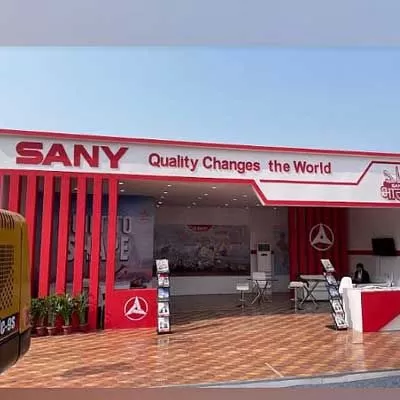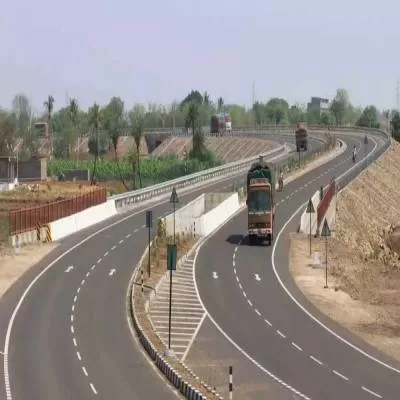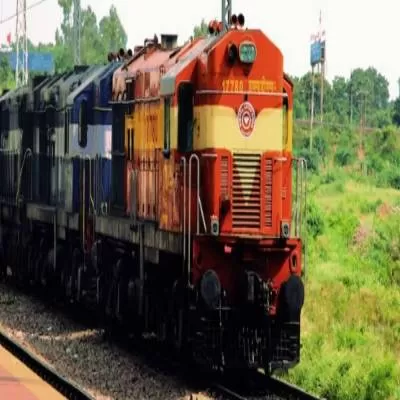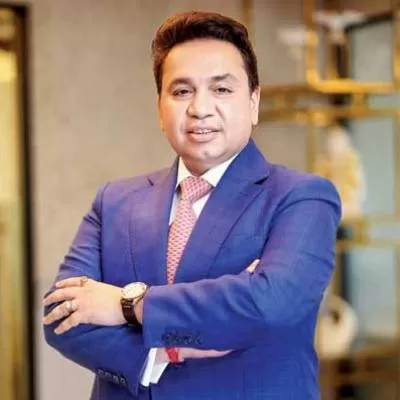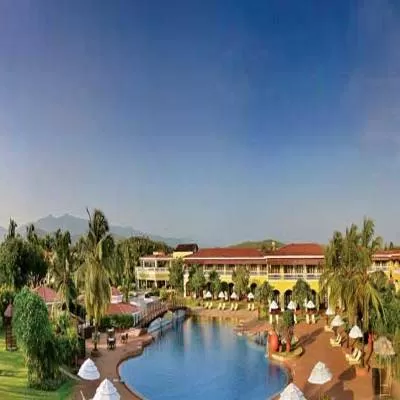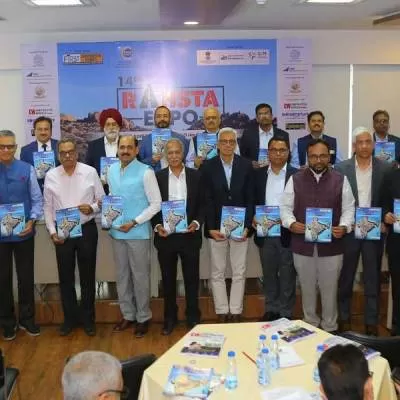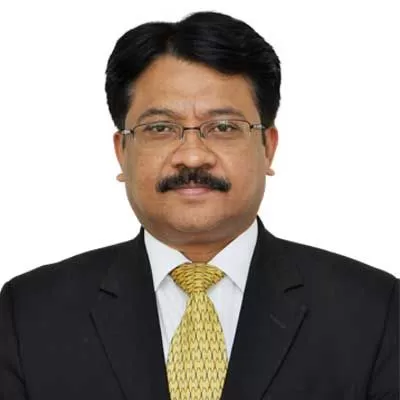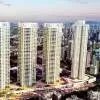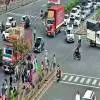- Home
- Infrastructure Urban
- ECONOMY & POLICY
- The annual civil budget of BBMP is about Rs 6,000 crore
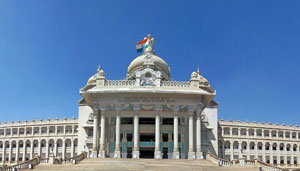
The annual civil budget of BBMP is about Rs 6,000 crore
Called the Silicon Valley of India, the metropolis of Bengaluru accounts for over 35 per cent of India's software exports and is renowned for its high-quality educational, scientific and technology institutions and manufacturing industry. All these factors combine to make the city a sought-after global destination. The Bruhat Bengaluru Mahanagara Palike (BBMP) has been endowed with the responsibility of upgrading the city's infrastructure. M Lakshminarayana, IAS, Municipal Commissioner, BBMP, speaks to AHLAM RAIS on some of the key projects in the city.
How has your experience been of taking over as municipal commissioner?
I have been posted at the BBMP for the past one year and have worked closely with the organisation. Through my experience, I can say that it has been a great challenge as one has to keep in mind the priorities for the city and its people, at the same time work in close coordination with the elected representatives, the Standing Committees and the BBMP Council, to seek necessary approval for the works. However, overall, it has been a good experience working in BBMP.
Elaborate upon the status of the city before you joined. What projects has the corporation undertaken under your guidance?
Prior to my appointment, the city had poor infrastructure. However, in the past 10 months, infrastructure has improved substantially, especially the roads. The corporation has also planned to carry out major infrastructure projects for the city such as elevated roads. We are also focusing on storm-water drainage systems to ensure that there is no flooding in low-lying areas. The corporation has also undertaken online activities through which people can pay property tax. Other services such as health, birth and death certificates can also be obtained through the web based services, to ensure minimum interference from officials. This will ensure transparency and a corruption-free administration.
Highlight the ongoing projects in the city.
Currently, construction and improvement work of around 400 km major arterial roads is in progress and as on today most roads in the core city have been asphalted. Apart from this, we have undertaken 12 road projects under 'TENDER SURE' the first of its kind in India, which ensures construction of quality roads. The BBMP has attempted to create superior roads through TENDER SURE in Bengaluru and work on these have already commenced. These roads will ensure further improvement of road infrastructure in the city.
Apart from this, various surveys have also been carried out for widening of roads based on traffic density, mainly in the new zones added to BBMP.
Which are the ROB or RUB projects in the city? What is the planned budget for these?
About 45 ROB and RUBs are proposed and among these 22 are under construction. Most of these projects play a vital role in connecting the city. One of the major ROB projects is located near Yelahanka , which will help ease traffic. Also, a few more ROB projects in the city such as ROB at Hoodi and Sarjapura lane helped in the reduction of traffic congestion. The planned budget for these projects is roughly about Rs 200 crore.
Following the success of Namma Metro Phase I, what is the status of the second phase of the Namma Metro project? Which areas will it cover?
Work on Phase 1 of the Namma metro is still in progress and is expected to be complete by the end of 2015. It consists of two corridors, east-west (Byappanahalli to Nayandanahalli and north-south (Hesaraghatta cross to Puttenahalli cross) comprising 42.3 km and 40 stations. Phase 2 of the project has commenced and will be completed by 2019 comprising 72.1 km and 61 stations.
What skywalks or subways will be constructed to ensure safety of pedestrians?
We are planning to construct nearly 45 skywalks all over the city on the suburban roads. However, we are not planning to construct subways as the subways created earlier were not properly planned. If subways are proposed in the future, we will carry out the project keeping in mind the key requirements. But to start off, the entire process will take some time.
What are your strategies to control waste management?
We are substantially handling the waste management system. Nearly 1,500 MT of waste is being processed and managed by the BBMP. There is a need to scale it up to 4,000 MT so that the entire waste of the city can be managed. As of now, most waste management plans are under implementation. Some waste management projects in the pipeline include a project of M/s Satarem, M/s MK aromatics, M/s Easel, M/s MSGP, the Noble exchange project and an organic waste India project in the city. Sewage and drainage projects have also been sanctioned for the development of the city. Segregation of waste at a house-hold level is being implemented or enforced. Dry waste collection centres are being established in all 198 wards of BBMP to collect dry waste separately.
Decentralised wet waste processing units such as biomethanisation plants are being established. Bulk waste management is being channelised with the onus of processing and disposal on generators with BBMP acting as a facilitator. Small decentralised wet and dry waste processing initiators are being encouraged. Collection of e-waste, sanitary waste, C&D waste, plastic waste are carried out separately and processing of the same is being envisaged.
What problems have to be addressed for the city's development?
Right now, we have to raise our resources to ensure that adequate resources are available for implementation of infrastructure projects. Once that is done, we will be able to bring about many changes in the city. We have to ensure that the projects are completed on time so that they do not cause inconvenience to the people and the cost does not escalate.
In terms of building, construction and infrastructure, what are the opportunities for a contractor, engineer or developer in the city?
Bengaluru is one of the fastest growing cities in India with good infrastructure and people in the city have higher income levels due to their employment and involvement in large number of national and multinational companies. There are tremendous opportunities for a contractor, engineer or developer in the city. The government and the local bodies are investing huge amount of money on infrastructure. There are also large scale investments by private sectors in housing, commercial and office infrastructure. While a large number of construction and infrastructure companies are already carring out good business, there is still scope for other companies to enter the field.
Bruhat Bengaluru Mahanagara Palike (BBMP)
Year of establishment: 1949 as BCC, 1995 as BMP and 2007 as BBMP
Total city area: 800 sq km
Focus: Infrastructure development and solid waste management
Current city population: About 95 lakh
Annual civil budget: About Rs 6,000 crore (The government provides about Rs 1,500 crore and the balance is raised by BBMP through taxes)
Municipal councillors: 198
JNNURM projects: Rs 1,500 crore worth projects sanctioned by the government for storm-water drainage and road infrastructure projects.
To share your views on this article, write in at feedback@ASAPPmedia.com
M Lakshminarayana, IAS, Municipal Commissioner, BBMP Called the Silicon Valley of India, the metropolis of Bengaluru accounts for over 35 per cent of India's software exports and is renowned for its high-quality educational, scientific and technology institutions and manufacturing industry. All these factors combine to make the city a sought-after global destination. The Bruhat Bengaluru Mahanagara Palike (BBMP) has been endowed with the responsibility of upgrading the city's infrastructure. M Lakshminarayana, IAS, Municipal Commissioner, BBMP, speaks to AHLAM RAIS on some of the key projects in the city. How has your experience been of taking over as municipal commissioner? I have been posted at the BBMP for the past one year and have worked closely with the organisation. Through my experience, I can say that it has been a great challenge as one has to keep in mind the priorities for the city and its people, at the same time work in close coordination with the elected representatives, the Standing Committees and the BBMP Council, to seek necessary approval for the works. However, overall, it has been a good experience working in BBMP. Elaborate upon the status of the city before you joined. What projects has the corporation undertaken under your guidance? Prior to my appointment, the city had poor infrastructure. However, in the past 10 months, infrastructure has improved substantially, especially the roads. The corporation has also planned to carry out major infrastructure projects for the city such as elevated roads. We are also focusing on storm-water drainage systems to ensure that there is no flooding in low-lying areas. The corporation has also undertaken online activities through which people can pay property tax. Other services such as health, birth and death certificates can also be obtained through the web based services, to ensure minimum interference from officials. This will ensure transparency and a corruption-free administration. Highlight the ongoing projects in the city. Currently, construction and improvement work of around 400 km major arterial roads is in progress and as on today most roads in the core city have been asphalted. Apart from this, we have undertaken 12 road projects under 'TENDER SURE' the first of its kind in India, which ensures construction of quality roads. The BBMP has attempted to create superior roads through TENDER SURE in Bengaluru and work on these have already commenced. These roads will ensure further improvement of road infrastructure in the city. Apart from this, various surveys have also been carried out for widening of roads based on traffic density, mainly in the new zones added to BBMP. Which are the ROB or RUB projects in the city? What is the planned budget for these? About 45 ROB and RUBs are proposed and among these 22 are under construction. Most of these projects play a vital role in connecting the city. One of the major ROB projects is located near Yelahanka , which will help ease traffic. Also, a few more ROB projects in the city such as ROB at Hoodi and Sarjapura lane helped in the reduction of traffic congestion. The planned budget for these projects is roughly about Rs 200 crore. Following the success of Namma Metro Phase I, what is the status of the second phase of the Namma Metro project? Which areas will it cover? Work on Phase 1 of the Namma metro is still in progress and is expected to be complete by the end of 2015. It consists of two corridors, east-west (Byappanahalli to Nayandanahalli and north-south (Hesaraghatta cross to Puttenahalli cross) comprising 42.3 km and 40 stations. Phase 2 of the project has commenced and will be completed by 2019 comprising 72.1 km and 61 stations. What skywalks or subways will be constructed to ensure safety of pedestrians? We are planning to construct nearly 45 skywalks all over the city on the suburban roads. However, we are not planning to construct subways as the subways created earlier were not properly planned. If subways are proposed in the future, we will carry out the project keeping in mind the key requirements. But to start off, the entire process will take some time. What are your strategies to control waste management? We are substantially handling the waste management system. Nearly 1,500 MT of waste is being processed and managed by the BBMP. There is a need to scale it up to 4,000 MT so that the entire waste of the city can be managed. As of now, most waste management plans are under implementation. Some waste management projects in the pipeline include a project of M/s Satarem, M/s MK aromatics, M/s Easel, M/s MSGP, the Noble exchange project and an organic waste India project in the city. Sewage and drainage projects have also been sanctioned for the development of the city. Segregation of waste at a house-hold level is being implemented or enforced. Dry waste collection centres are being established in all 198 wards of BBMP to collect dry waste separately. Decentralised wet waste processing units such as biomethanisation plants are being established. Bulk waste management is being channelised with the onus of processing and disposal on generators with BBMP acting as a facilitator. Small decentralised wet and dry waste processing initiators are being encouraged. Collection of e-waste, sanitary waste, C&D waste, plastic waste are carried out separately and processing of the same is being envisaged. What problems have to be addressed for the city's development? Right now, we have to raise our resources to ensure that adequate resources are available for implementation of infrastructure projects. Once that is done, we will be able to bring about many changes in the city. We have to ensure that the projects are completed on time so that they do not cause inconvenience to the people and the cost does not escalate. In terms of building, construction and infrastructure, what are the opportunities for a contractor, engineer or developer in the city? Bengaluru is one of the fastest growing cities in India with good infrastructure and people in the city have higher income levels due to their employment and involvement in large number of national and multinational companies. There are tremendous opportunities for a contractor, engineer or developer in the city. The government and the local bodies are investing huge amount of money on infrastructure. There are also large scale investments by private sectors in housing, commercial and office infrastructure. While a large number of construction and infrastructure companies are already carring out good business, there is still scope for other companies to enter the field. Bruhat Bengaluru Mahanagara Palike (BBMP) Year of establishment: 1949 as BCC, 1995 as BMP and 2007 as BBMP Total city area: 800 sq km Focus: Infrastructure development and solid waste management Current city population: About 95 lakh Annual civil budget: About Rs 6,000 crore (The government provides about Rs 1,500 crore and the balance is raised by BBMP through taxes) Municipal councillors: 198 JNNURM projects: Rs 1,500 crore worth projects sanctioned by the government for storm-water drainage and road infrastructure projects. To share your views on this article, write in at feedback@ASAPPmedia.com


